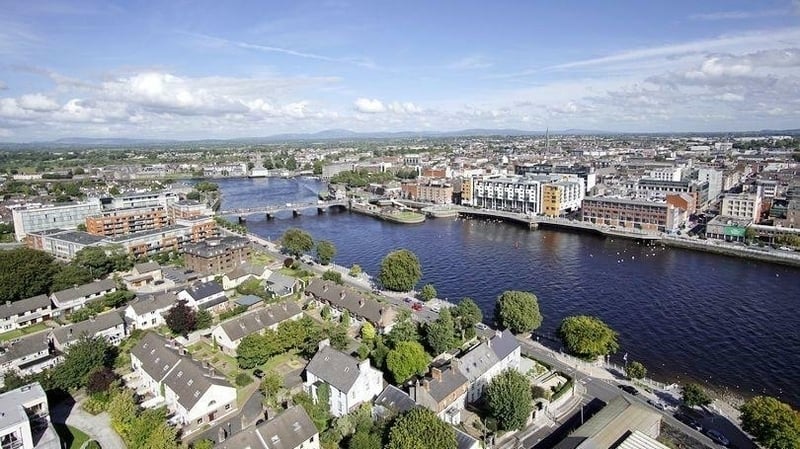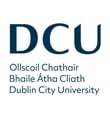Analysis: Directly elected mayors are the way to go, but it's not enough without the appropriate financial and legislative supports
The upcoming election of the mayor of Limerick city and county is a first for Ireland. Never before have local citizens been offered a real input in to the election of their first citizen. Following the election, the mayor will take over a significantly redesigned local government system whereby many of the executive functions, currently held by the chief executive of Limerick City and Council, will reside with him or her.
This momentous change has its origins in Limerick's 2019 plebiscite and preparations to introduce the Limerick directly elected mayor began soon after. An Implementation Advisory Group was established by the Department of Housing, Local Government in December 2019 and published a comprehensive report in 2020, outlining how best to establish and shape the role of Directly Elected Mayor.
Limerick – Let's Talk About our Mayor!’ was led by the University of Limerick and served to raise public awareness and identify challenges and opportunities. In April 2021, the Government signed off on the General Scheme of a Bill and the Local Government (Mayor of Limerick) and Miscellaneous Provisions Bill 2023, was received for final consideration and passed in the Dáil last December.
We need your consent to load this rte-player contentWe use rte-player to manage extra content that can set cookies on your device and collect data about your activity. Please review their details and accept them to load the content.Manage Preferences
From RTÉ Radio 1's Morning Ireland in 2021, Cian McCormack reports on how Limerick will become the first city in Ireland with a directly elected mayor, with executive powers
There has been growing policy attention and research directed at local government reform in Ireland in recent years, culminating in a Dublin Citizens' Assembly tasked with examining and bringing forward proposals regarding the type of directly elected mayor and local government structures best suited for Dublin. In essence, there is a recognition that the existing model of local government is well past its sell by date. It has very limited functions, is reliant on a narrow range of funding sources, has very limited autonomy and is poorly structured to provide strategic political leadership.
The introduction of directly elected mayors promises to address some but not all of these problems. Quite simply, local leadership matters. A directly elected mayor can make a critical difference to the quality of life in Limerick or Dublin. What makes the directly elected mayor so attractive as a public institution is that it facilitates better city leadership by making city leaders and their work more transparent and by attracting different types of civic leader to the role.
One of the great successes of the introduction of directly elected mayors in the UK was the focus that mayors like Ken Livingstone, Boris Johnson and Sadiq Khan in London, Andy Burnham in Manchester and Steve Rotheram in Liverpool were able to bring to particular issues. By having a mandate and the willingness to advocate on behalf of specific issues, they were able to negotiate with central government on behalf of their cities and regions.
We need your consent to load this rte-player contentWe use rte-player to manage extra content that can set cookies on your device and collect data about your activity. Please review their details and accept them to load the content.Manage Preferences
From RTÉ Radio 1's Morning Ireland, should Dublin have a directly elected mayor?
But it is not just about having specific powers (although these are useful), it is also the profile direct election brings. The directly elected mayor becomes a very powerful ambassador for the city and when they use their profile appropriately they can leverage improvements well beyond the powers granted to them under the legislation.
However, directly elected mayors, while critical, are not sufficient. Local decision making needs to be taken seriously and the appropriate financial and legislative framework must be put in place. For example, approximately 9 to 11% of Irish government expenditure is spent by local government. In the EU27, the average figure is 38.3%, and less than 5% is raised at local level. The Irish figure is one of the lowest in the EU and reflects the highly centralised nature of Ireland's system of government.
A directly elected mayor with no money won’t have the power to effect change. One of the challenges facing a directly elected mayor will be how he or she approaches raising money. Directly elected mayors will be accountable to the citizens of the city and for the taxes or funds they raise from the city.
We need your consent to load this rte-player contentWe use rte-player to manage extra content that can set cookies on your device and collect data about your activity. Please review their details and accept them to load the content.Manage Preferences
From RTÉ Radio 1's Drivetime, John Cooke talkers to voters in Limerick who will going to the polls on June 7th to choose the country's first directly elected mayor
We also need to take local decision-making more seriously. Directly elected mayors are a welcome institutional reform but there are a number of other very significant reforms necessary to adequately equip local government in Ireland to meet the challenges it faces.
For example the recent Dublin Citizens’ Assembly recommended the establishment a standing Dublin Citizens’ Assembly similar to Paris. Such an Assembly would provide its members, randomly selected for 12 months, with new tools to learn, discover and decipher municipal issues, better understand how their city or county and public services work, breathe new life into ideas and influence public decision-making.
In a country like ours, a directly elected mayor will be scrutinised by the media in a way similar to the Taoiseach
The mayor must also be given more power to set priorities in terms of transport and housing; the Mayor of London is in charge of transport for the city. The research collated as part of the Dublin Citizens’ Assembly shows that directly elected mayors need to be empowered to shape such investment decisions.
Directly elected mayors are the way to go, but their introduction is not the only reform we need to think about. Their election brings attention to the work of the mayor and means that he or she will have to show progress on the electoral promises they committed to – or they won’t get re-elected. In a country like ours, a directly elected mayor will be scrutinised by the media in a way similar to the Taoiseach. The direct election will bring more publicity and public scrutiny than the current model.
The author was a member of the Expert Advisory Group to the Dublin Citizens' Assembly.
Follow RTÉ Brainstorm on WhatsApp and Instagram for more stories and updates
The views expressed here are those of the author and do not represent or reflect the views of RTÉ


